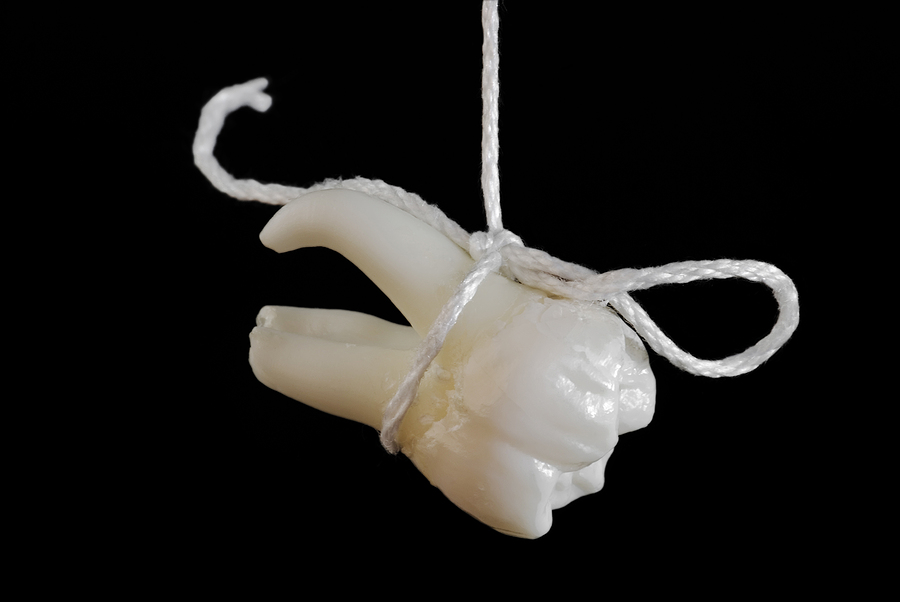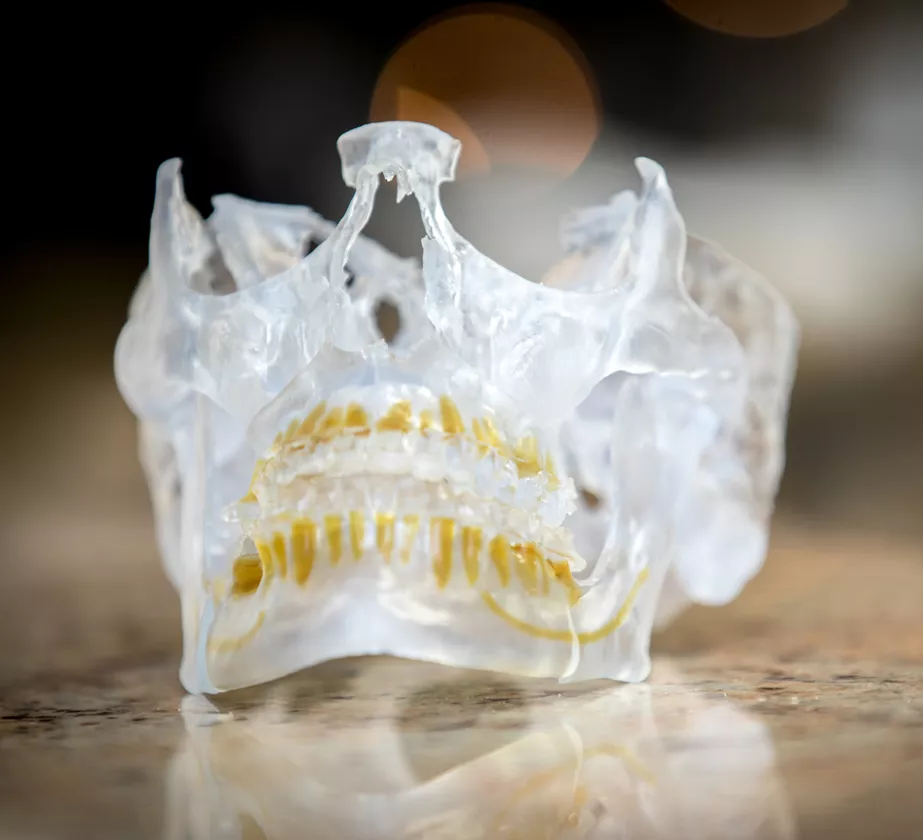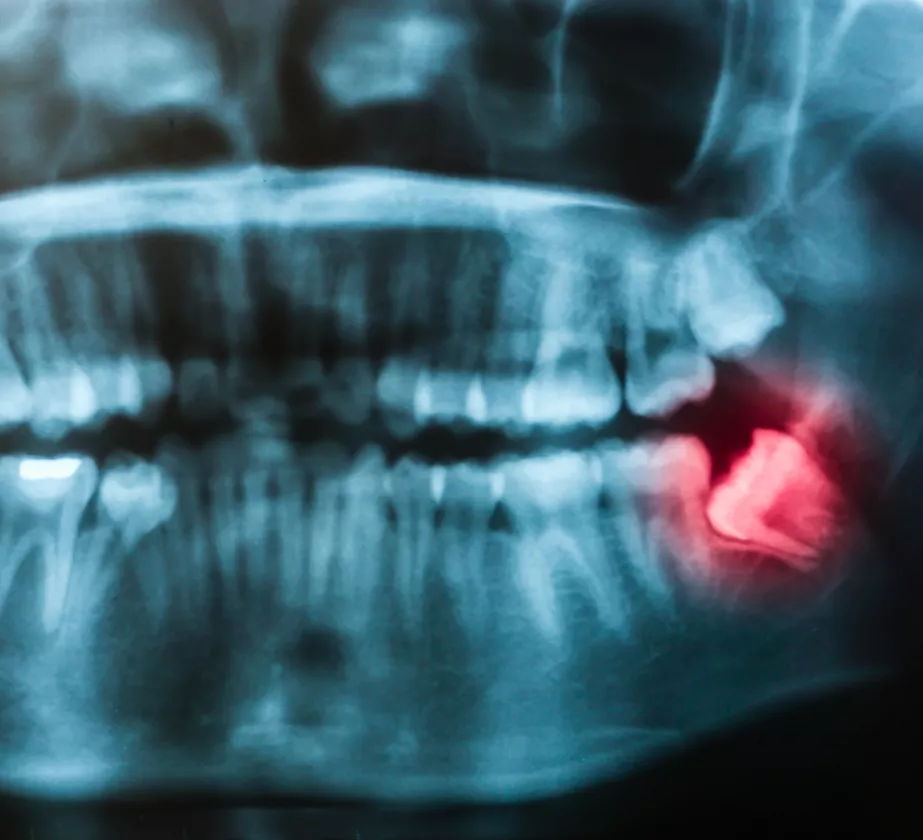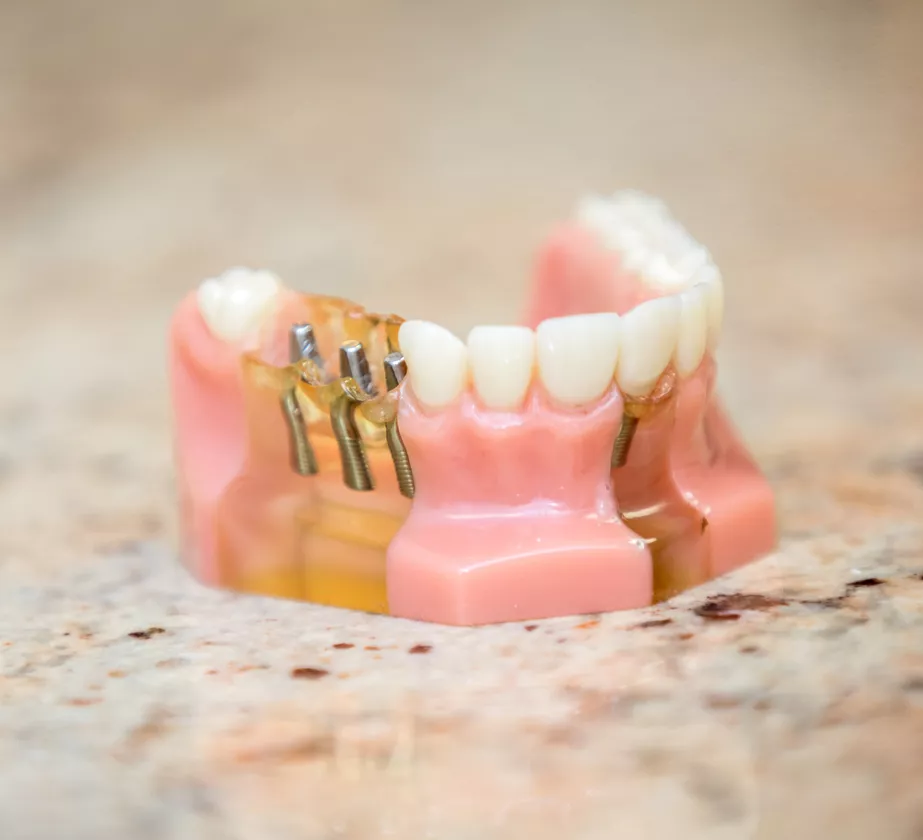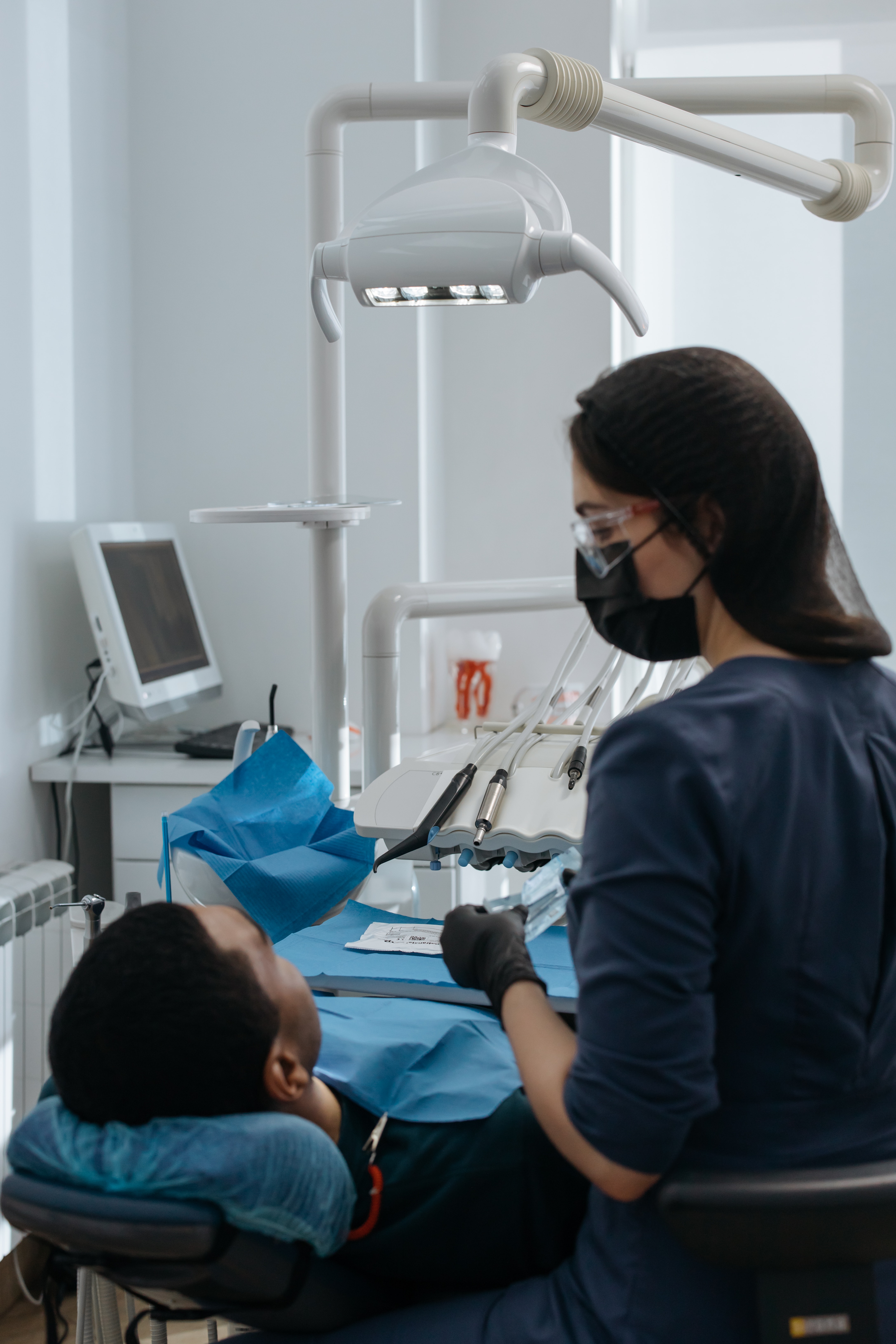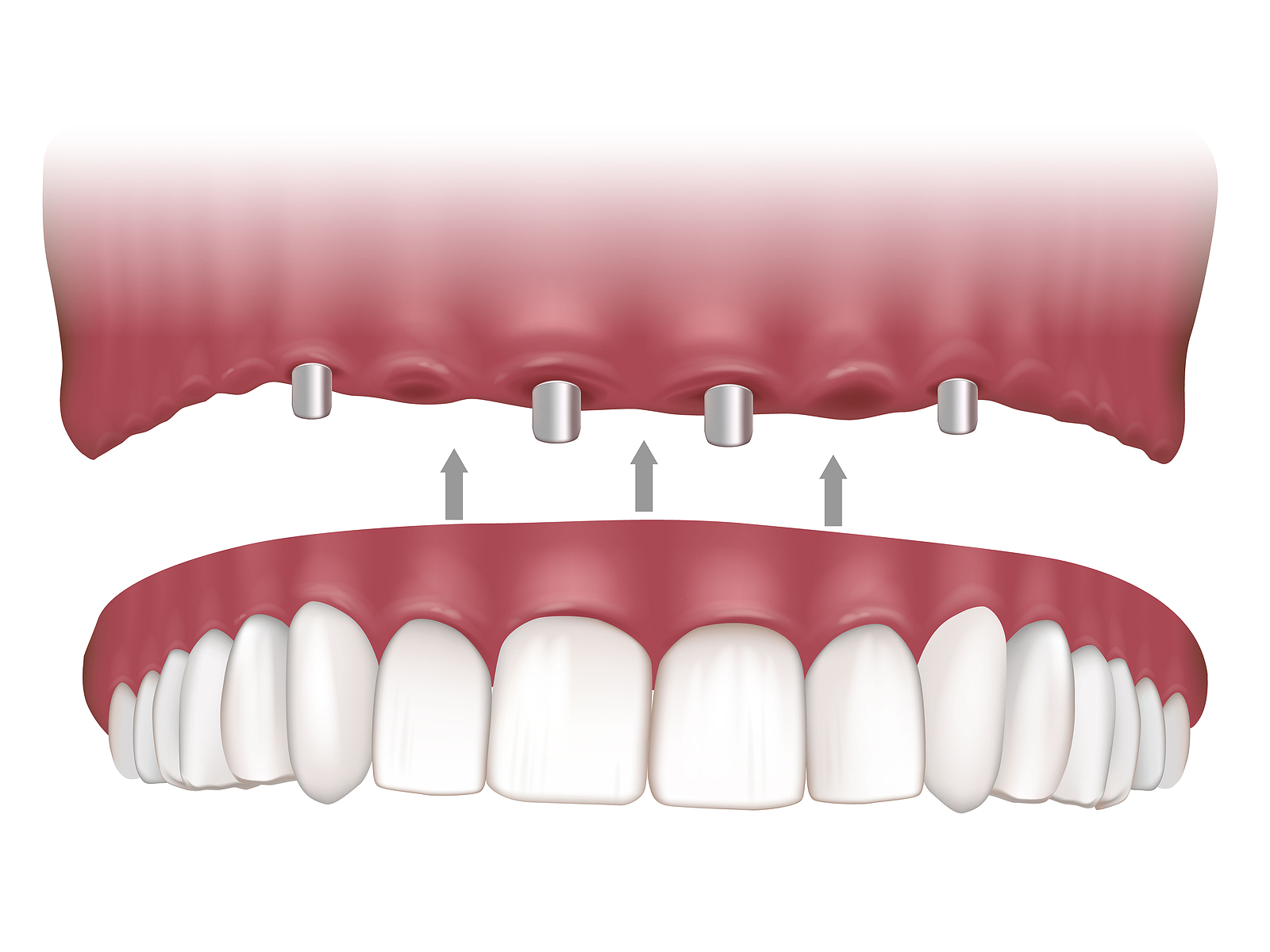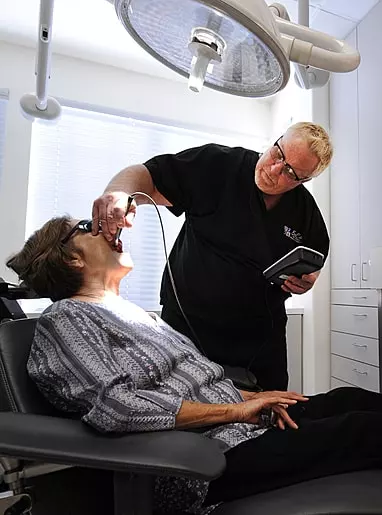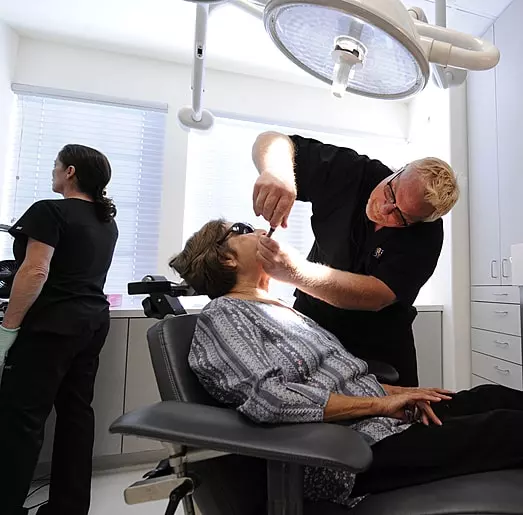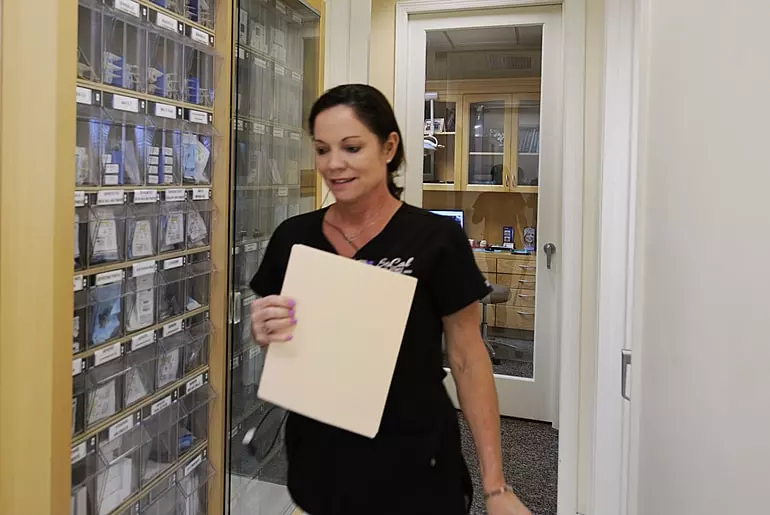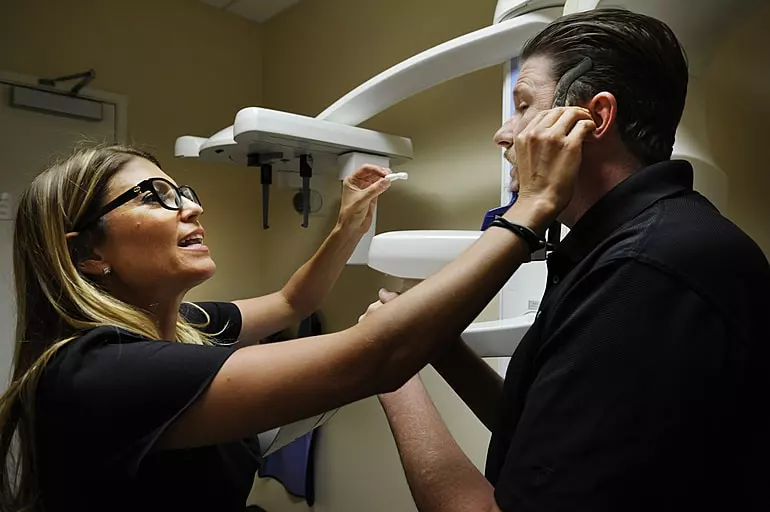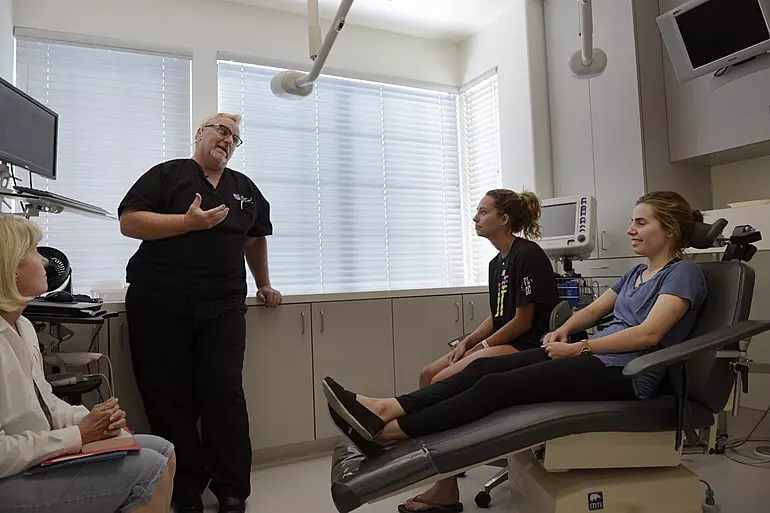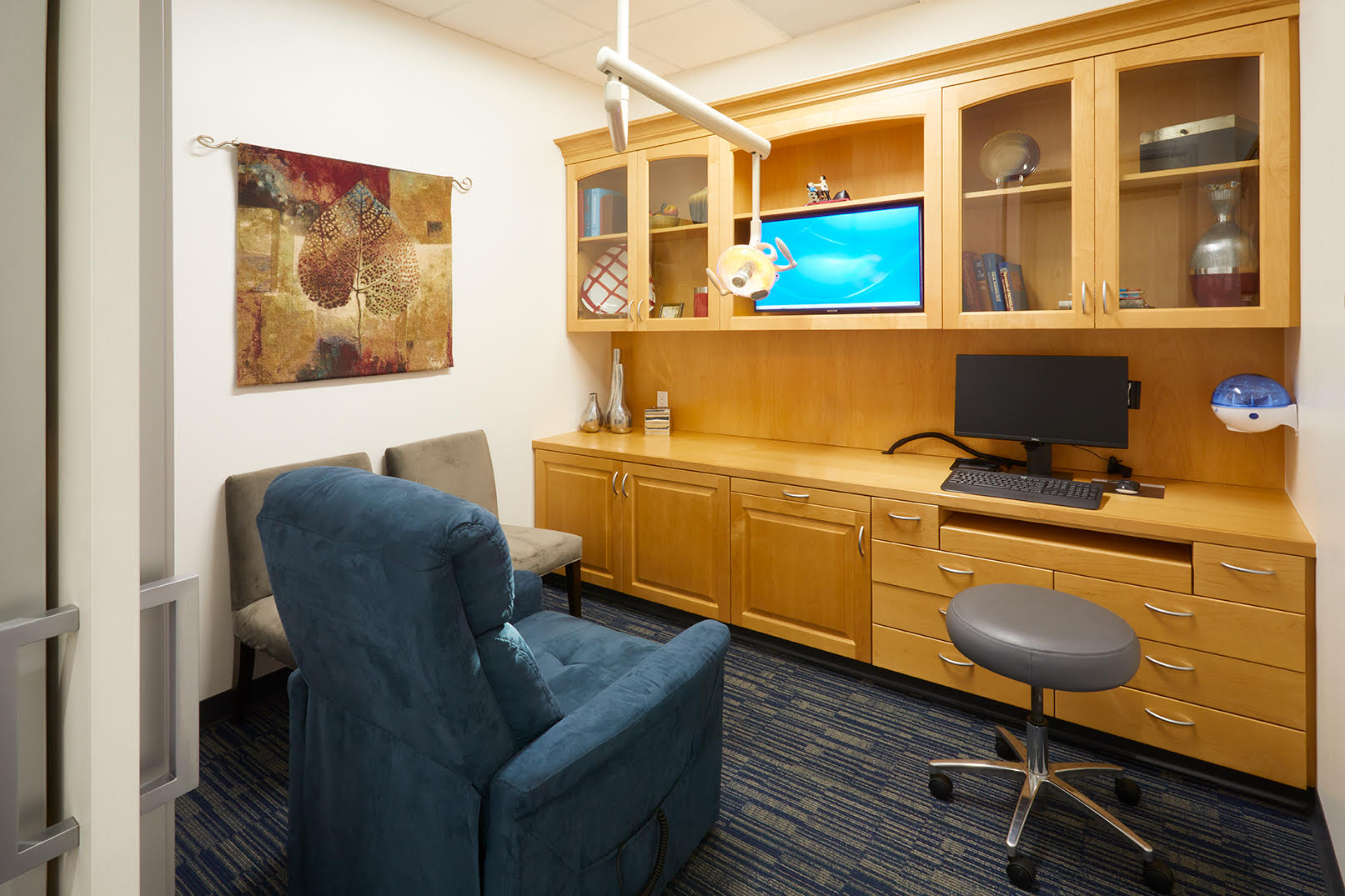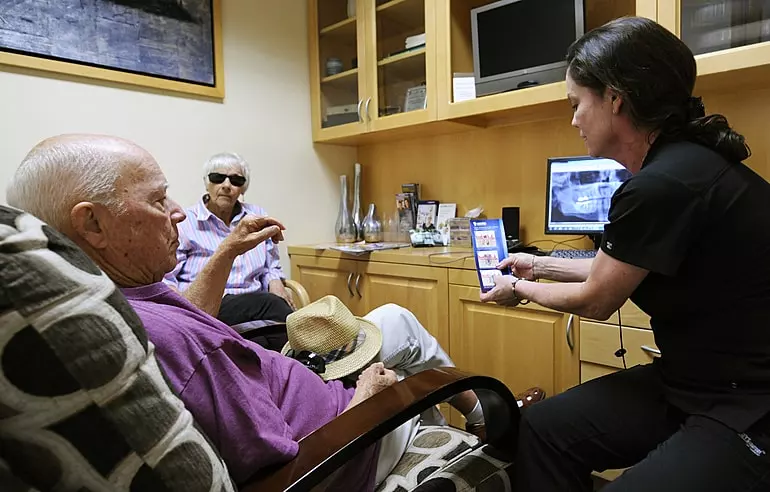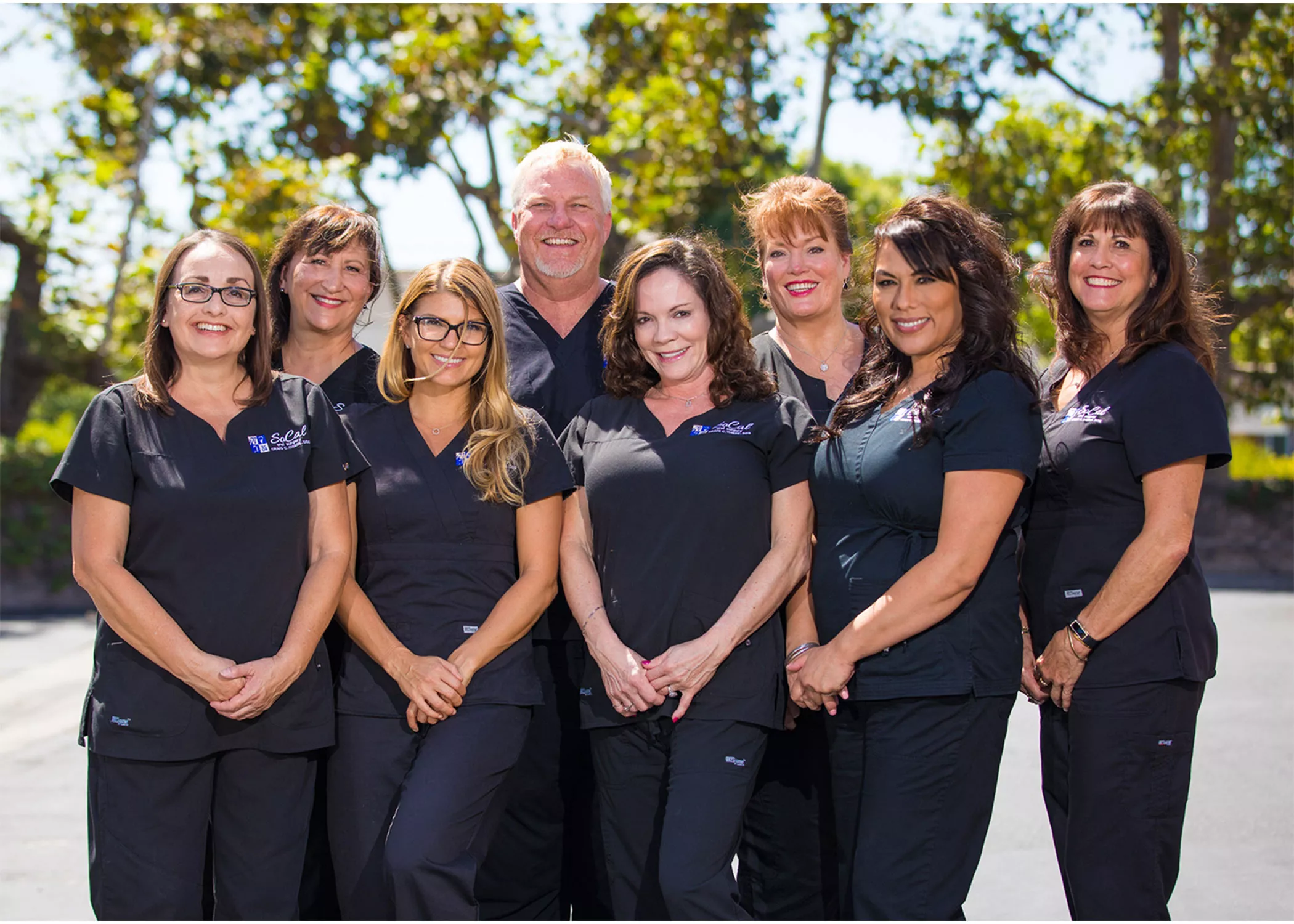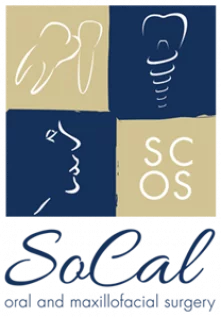
SoCal Oral and Maxillofacial Surgery
At SoCal Oral and Maxillofacial Surgery, we believe in treating people, not cases. Whether a young child or a busy retiree, we make it our priority to get to know you, your concerns, and your oral health goals so we can provide cutting-edge treatment to improve your health, function, and appearance.
Our experienced oral surgeon, Dr. Craig Thiede, is at the forefront of technology and use minimally invasive techniques to improve the success of procedures and create a positive patient experience. Our goal is to make every patient feel comfortable, so no matter the fear level, we try to make difficult situations easier by working together and providing solutions to ease anxiety. Dr. Thiede is certified to administer IV sedation, and we also offer other options depending on your procedure and unique case.
Whether you need complex orthognathic surgery, expert dental implant placement, or wisdom teeth removed, our oral surgeons and team are proud to provide trustworthy, experienced care for your whole family.
Meet Our Oral Surgeon
Dr. Craig C. Thiede
Dr. Craig Thiede is a Tustin, CA, oral surgeon. He was born in Barstow, California. However, he was raised most of his life in Hacienda Heights, California. He did his undergraduate work at the University of Southern California. He received his dental degree from the New York University School of Dentistry in 1988. He received his postgraduate training in Oral and Maxillofacial Surgery from New York University Woodhull Hospital. Dr. Thiede and his staff are committed to providing you with honest, quality, comprehensive treatment.
Read More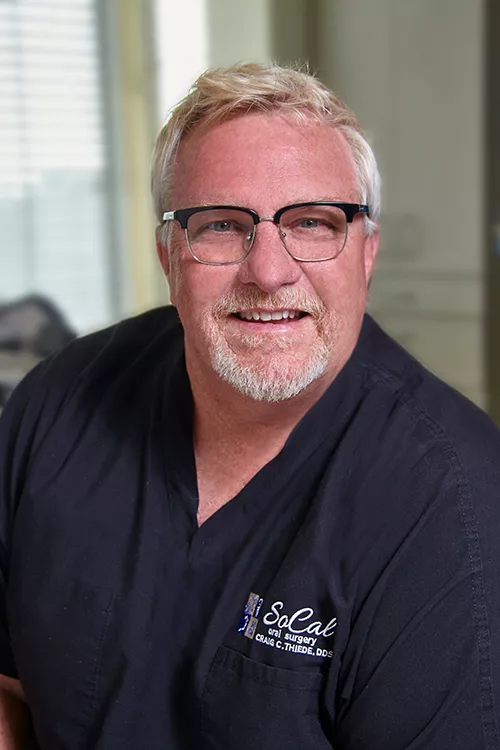
Gallery
DENTAL IMPLANTS
EXPLORE DENTAL IMPLANTSLocation
13522 Newport Avenue, Suite 109,
Tustin, CA 92780
Office Hours
MON8:00 am - 5:00 pm
TUE8:00 am - 5:00 pm
WED8:00 am - 3:00 pm
THU8:00 am - 5:00 pm
FRI7:00 am - 3:00 pm
SATClosed
SUNClosed
SoCal Oral and Maxillofacial Surgery
Location
13522 Newport Avenue, Suite 109,
Tustin, CA, 92780
Phone: (714) 730-6767Text Us: (714) 730-6767
